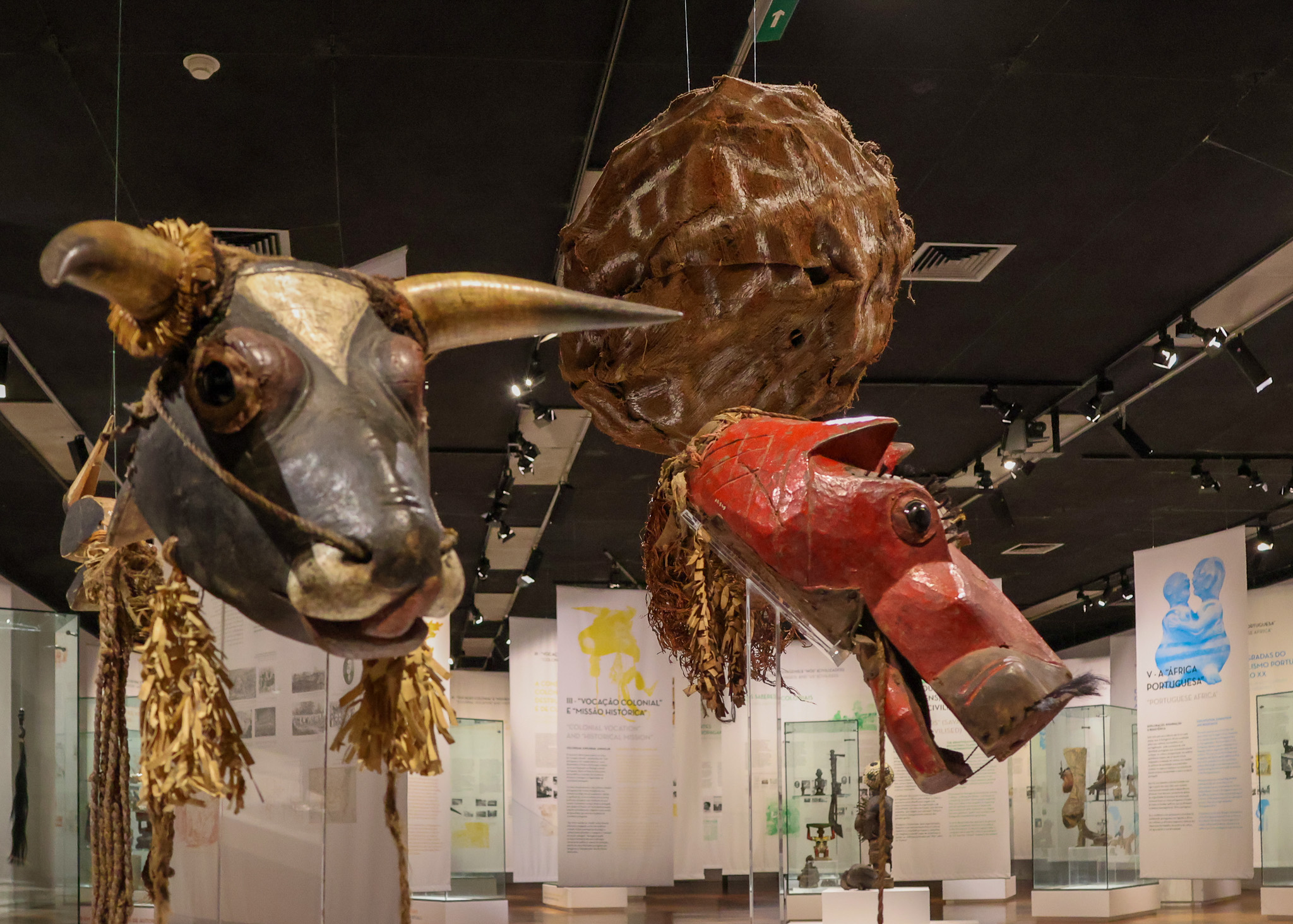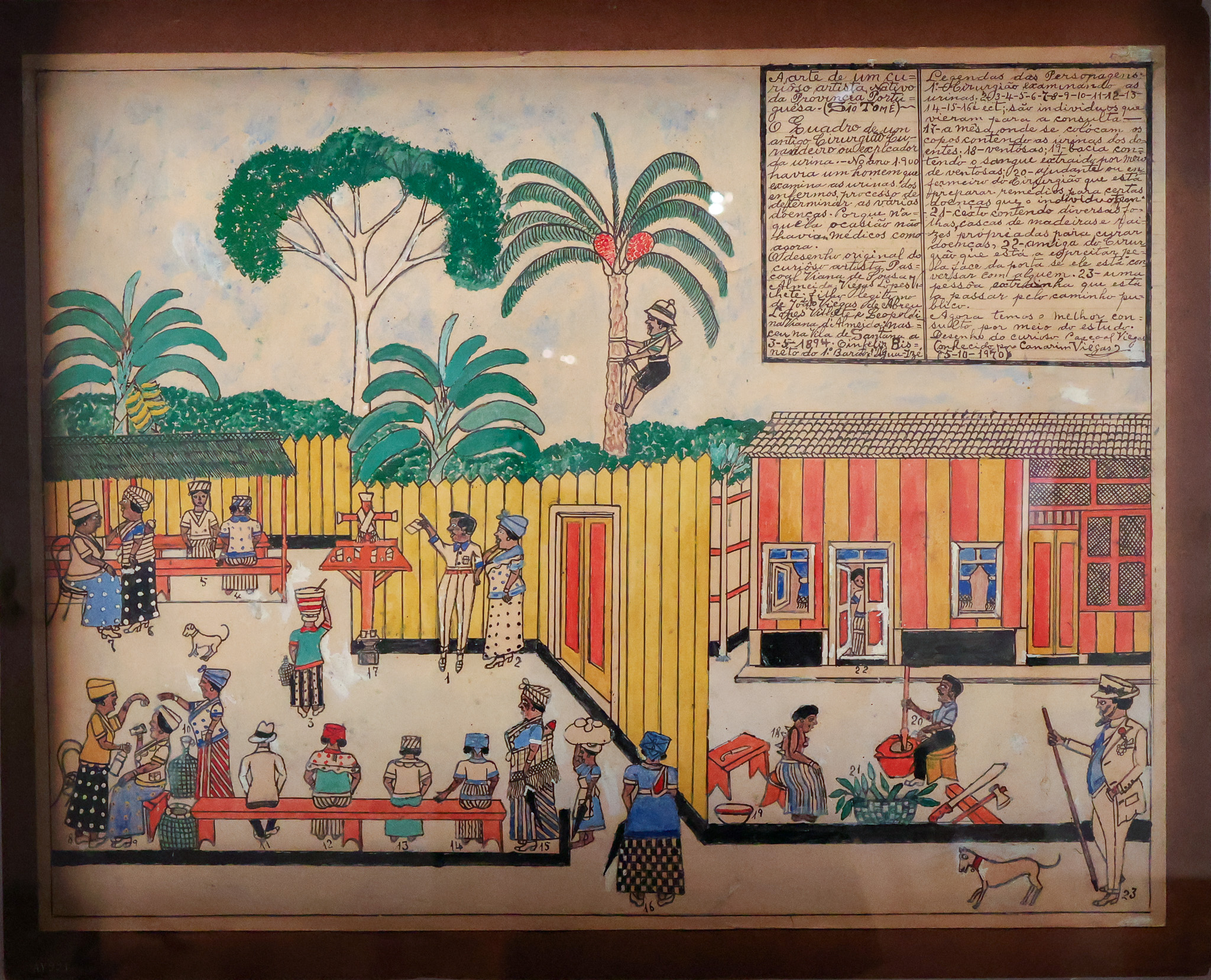CEsA researcher opens exhibition ‘Deconstructing Colonialism, Decolonising the Imaginary. Portuguese Colonialism in Africa: Myths and Realities’

On October 29, 2024, Professor Isabel Castro Henriques, historian and CEsA researcher (CSG/ISEG-ULisboa, Portugal), inaugurated the exhibition Deconstructing Colonialism, Decolonizing the Imaginary. Portuguese Colonialism in Africa: Myths and Realities. The exhibition, on display at the largest temporary exhibition hall of the National Museum of Ethnology (Avenida da Ilha da Madeira, 1400-203 Lisbon), will run until November 2, 2025.
This project, conceived and coordinated by Professor Castro Henriques, commemorates the 50th anniversary of the Portuguese Revolution of April 25, 1974. It emphasises the importance of revisiting, reflecting upen, and understanding the history of Portuguese colonialism in Africa during the 19th and 20th centuries to foster a more inclusive future. It is co-organised by CEsA – Center for African and Development Studies and the National Museum of Ethnology, with the support of the 50 Years of the 25th of April Commemorative Commission.

At the invitation of Professor Castro Henriques, the opening ceremony featured contributions from Eduardo Moraes Sarmento (Director of CEsA, CSG/ISEG-ULisboa), Paulo Ferreira da Costa (Director of the National Museum of Ethnology/Museum of Popular Art), Alexandre Pais (President of Portugal Museums and Monuments – EPE), and Maria de Lourdes Craveiro (Secretary of State for Culture). In his address, Sarmento evoked the poem Urgentemente by Eugénio de Andrade to underscore the values of freedom, culture, and memory as pillars of individual and collective experiences in building a more just and equitable society.
“Valuing culture, traditions, and memory can help overcome social inequalities and promote intercultural dialogue. Our community must play its part in preserving what we cannot afford to forget as a society. Only by learning from the lessons of the past can we avoid perpetuating them and reconcile with history,” said Sarmento at the exhibition’s opening.
Exhibition Structure
The exhibition is structured around two main themes:
- The Power of Historical Narrative – This section draws on the research of approximately 30 scholars and incorporates iconographic documentation provided by Portuguese and international institutions. It combines text and imagery to give historical knowledge a compelling voice.
- The Voices of African Cultures – Featuring 139 artworks, this section presents tangible evidence of African thought and cultures, challenging stereotypes rooted in colonial ideology. Highlights include pieces from the National Museum of Ethnology’s collections, items on loan from the Calouste Gulbenkian Foundation, and works from private collections belonging to Francisco Capelo, Lívio de Morais, Hilaire Balu Kuyangiko, and Mónica de Miranda.

The exhibition’s Executive Committee, chaired by Isabel Castro Henriques, includes Inocência Mata, Joana Pereira Leite, João Moreira da Silva, Luca Fazzini, and Mariana Castro Henriques. The Scientific Committee, also chaired by Castro Henriques, comprises 20 members, including António Pinto Ribeiro, Aurora Almada Santos, Elsa Peralta, Isabel do Carmo, and José Neves.
Parallel Program
The exhibition is accompanied by an extensive parallel program, which includes:
- A Cinema and Decolonisation Cycle, with screenings at ISEG and the National Museum of Ethnology;
- An Itinerant Exhibition, to be displayed in schools and cultural centers across Portugal and in Portuguese-speaking regions in Africa and Brazil,
- A Series of Talks, titled Deconstructing Racism, Decolonising the Museum, Rethinking Knowledge, hosted at the National Museum of Ethnology, alongside scientific conferences and colloquia, exploring themes related to the exhibition;
- A complementary publication, Deconstructing Colonialism, Decolonizing the Imaginary, has been released by Colibri Editions. In its 344 pages, approximately 30 contributing researchers delve into the various topics covered in the exhibition.

For more details:
Exhibition ‘Deconstructing colonialism, Decolonising the imagination’ on display at the National Museum of Ethnology until November 2, 2025
Exhibition ‘Deconstructing colonialism, Decolonising the imagination’ [National Museum of Ethnology’s website]
Exhibition ‘Deconstructing colonialism, Decolonising the imagination’ [50 Years of the 25th of April Commemorative Commission’s website, only in Portuguese]
Cinema and Decolonisation Cycle to screen films as part of the exhibition ‘Deconstructing Colonialism, Decolonising the Imagination;’ Opening session on November 9 at ISEG
Exhibition on colonialism at the National Museum of Ethnology [ISEG’s website]
Desconstructing Colonialism, Descolonising Imaginary [Edições Colibri’s website]
Author: CEsA Communications (comunicacao@cesa.iseg.ulisboa.pt) with information from the Communications of the National Museum of Ethnoloy
Image: Iria Simões





